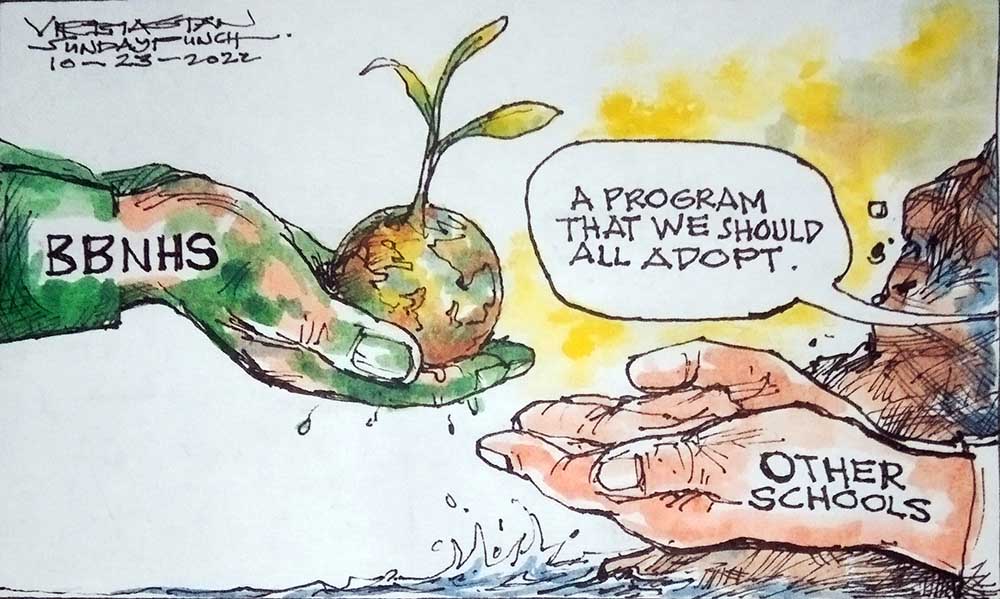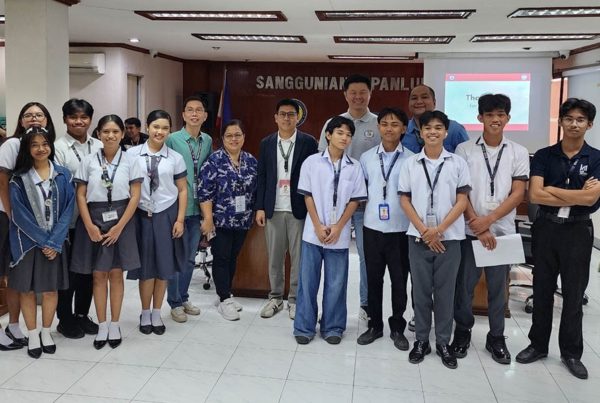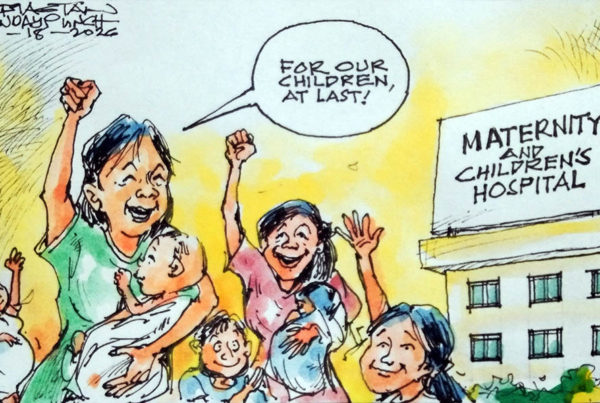
Emulate and duplicate the BBNHS program
DAGUPAÑOS and Pangasinenses have every reason to celebrate the triumph of the Bonuan Boquig National High School on being heralded as the T4 World’s Best School’s Practices under the Environmental Action Category.
But lest we forget, its’ not only the winning in this case that must be cheered. It was not just about another awards program for a laudable environment program but a program with a clear message to all, particularly to the Dagupan City government, the Pangasinan provincial government and to the Department of Education.
For who have thought that a seemingly insignificant effort by a small school in a barangay, planting mangroves can draw international attention and citation. Clearly, the award is saying a lot more than just selecting a winner for the year.
It’s about telling the world to duplicate and share a simple act can impact not only on the environment but on the community. It was not about planting mangroves per se but a collective effort with a single objective – to effectively contain soil erosion. It’s about citing a program that the world needs to emulate and duplicate.
And the best accolade and honor that the Dagupan City government and the City’s Division of Schools can bestow on BBNHS is to make all schools in the city adopt the program. As the awards program prefaced it, it’s about best practices acts that must be shared.
To give the award the significance it deserves, DepEd must seek to implement what has been hailed as a best practice in a school, regardless of location in the city, province or region.
Food for pupils
IN Finland, free school meals have been the standard for ages. Meaning, every student is fed every school day. In fact, Finland, a part of the so-called Baltic countries that include Estonia, Latvia and Lithuania in Europe, oversees the world’s longest-running free school feeding system. The country that borders Sweden, Norway and Russia, provides a healthy food to all students attending pre-primary, basic and upper secondary education. Finland’s school officials strictly adhere to the saying, “a hungry child is more likely to drop out of school.” While Finland allocates the equivalent of P160 for student’ school meals, only a measly P20 is set selectively for Filipino elementary pupils—mostly Grade 4 pupils and below. What a pity.
And to think that billions of pesos are being requested for intelligence funds by our education officials amid widespread hunger? Ouch!









